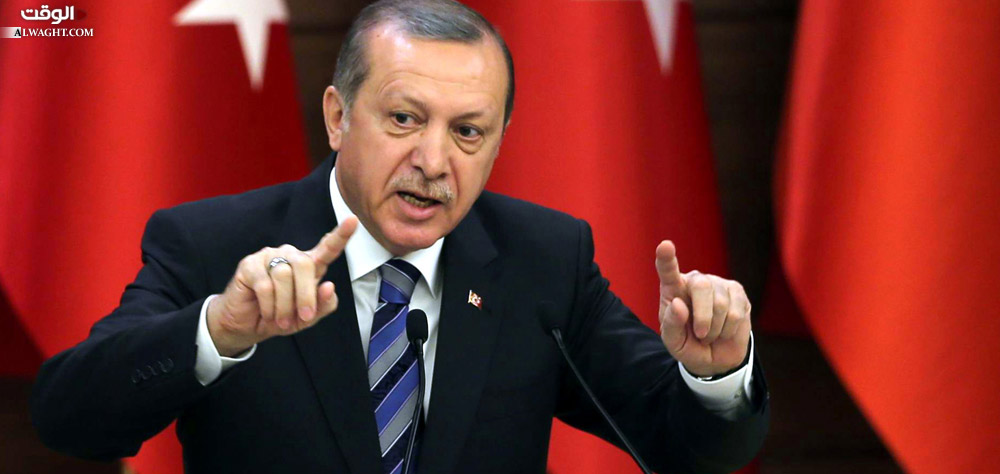Alwaght- The recent years' Turkish implementation of the zero-tension foreign policy to approach the neighbors has been pursued as part of the broader “neo-Ottomanism” policy.
During the peaceful times of the West Asia, just before the 2011 Arab uprisings' eruption and rise of the terrorist groups in the region, the Turkish leaders in practice followed their neo-Ottomanist policies through working towards zero-distressed relations with their neighbors. However, when the revolts began to strike the region, the Ankara foreign policy underwent some changes to help befit the neo-Ottomanist policies of the Turkish leaders. Since then, Ankara started a series of interventions in its neighbors' domestic affairs, particularly those affected by waves of terror.
The Turkish interventionist approach not only strained Ankara ties with Syria and Iraq as the hotspots of war against terrorism in the region but also the Turkish conflict of policies began to appear also with other regional countries such as Iran.
Syria
The analysts suggest that the Ankara leaders since outbreak of the crisis made a strategic mistake in their calculations about the West Asian developments, thinking that Syria will experience political transformation like other Arab countries such as Egypt, Tunisia, and other nations where the popular uprisings brought down the governments. This Turkish leaders' miscalculation about Syria is largely attributed to the Turkish ignorance of the equations influencing the Syrian developments. This is why, the analysts argue, Turkey’s leaders in recent years began to pay the price of their faulty estimations.
Although for some time Ankara's push for removal of President Bashar al-Assad of Syria turned into a matter of honor for President Recep Tayyip Erdoğan at home, in practice not only it was of no avail for Turkey but also it for various reasons posed risks to the Turkish national security. Before the crisis, Turkey enjoyed peace and security on its common borders with Syria and Iraq, but now it is grappling with terrorists who any time can jeopardize its borders and territories. Turkey borders countries where governments are unstable and fragile. Such a fragility stirs insecurity across the region and even inside Turkey. Another challenge Ankara is facing is the Kurdish cause. Historically, the Turks have struggled with the Kurdish existence in the Turkish territory. Now and after Ankara’s Syria interventions, the Turkish-Kurdish head-on clash has touched its climactic point.
Iraq
Even in Iraq, there is no outlook for the Turkish success in pursuit of its goals, in part because the central Iraqi governments is even stronger than the Syrian government, and proved more ready to respond to any foreign aggression. Turkey policy failure in Iraq is even more likely as Iran and the Public Mobilization Forces (PMF), a popular force established in opposition to the ISIS terrorist group, are now effectively playing their fixed role in Iraq. To Ankara’s frustration, the Turkish leaders are well aware that they will not be allowed role in Iraq’s future, nor in Mosul, where the Sunnis are in majority. All of Erdoğan's Iraq-related maneuvering and propaganda come to secure a role in a future Iraq. The Turkish leaders think that pressing for participation in Mosul recapture operation will guarantee them a voice in Iraq's prospective decision making process.
Iran
The Turkish-Iranian rivalry is not new, rather is as old as their age in the modern times, and even before. The two sides are engaged in a geopolitical competition, beside their older ideological contest. Their rivalry is reflected by the wars they waged against each other in older times. To put it differently, each side strives for a broader area of regional influence. The same geopolitical and ideological encounter today exists between Tehran and Ankara in various areas including the Syrian crisis.
However against the backdrop of their rivalry, the two sides need cooperation in a series of areas like energy and the Kurdish cause, though the recent Turkish fashion of addressing the regional developments has partly escalated the tensions between Tehran and Ankara.



























